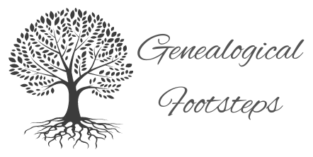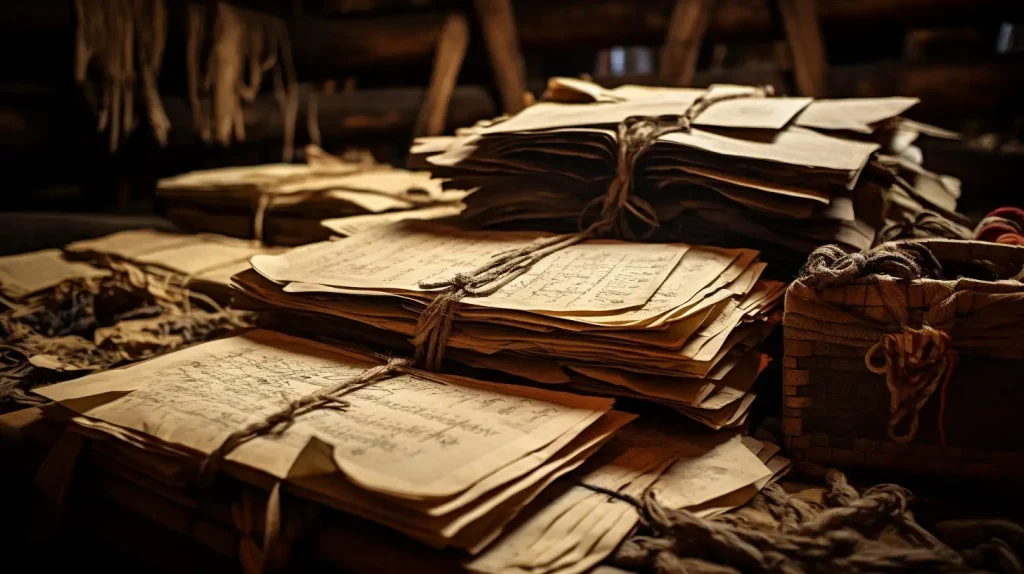Genealogy isn’t just a pastime; it’s a deep dive into history, a way to connect with your ancestors and understand your family’s unique story. Whether you’re a beginner or a seasoned family historian, genealogy research offers a rewarding journey through time. It’s more than just building your family tree; it’s about preserving your family’s history for future generations.
Key Takeaways
- Setting Clear Goals: Before diving into genealogy research, it’s crucial to set specific and achievable research goals. Knowing what you want to discover will guide your research effectively.
- Gathering Initial Information: The first step in any genealogical journey is to gather as much information as possible from available sources, including interviews with older relatives and personal records like birth and marriage certificates.
- Organisation is Key: Keeping your research data well-organised is essential for effective genealogy. Utilising tools like genealogy software or spreadsheets can help keep your findings in order.
- Accessing Records: Knowing where to look for information is crucial. Online databases like FamilySearch and Ancestry.co.uk, as well as physical archives like local libraries and courthouses, are valuable resources.
- Analysing Information: Simply gathering data is not enough; it’s vital to analyse the information to understand the context in which your ancestors lived. Cross-referencing and contextualising are key steps in this process.
- Overcoming Challenges: Every genealogist hits a ‘brick wall‘ at some point. Strategies like broadening your search, consulting online forums, and taking breaks can help overcome these challenges.
- Utilising Various Types of Records: Understanding the different types of records available, from census data to church records, can provide a more comprehensive view of your family history.
- Sharing Your Findings: Once you’ve gathered and analysed your data, sharing it with family members and preserving it for future generations becomes the final, rewarding step in your genealogical journey.
Getting Started Genealogy With Research?
People embark on their genealogy research journey for various reasons. Some are driven by curiosity to uncover family stories and traditions that have been passed down through generations. Others may be searching for vital information about their ancestors’ medical history or even looking to validate family legends. The motivations are as diverse as the family histories waiting to be discovered.
Tips:
- Identify Your First Goal: Knowing what you want to achieve will guide your research.
- Talk to Older Relatives: They often hold a wealth of family stories and vital information.
Setting Your Research Goals
Before you start searching through historical documents or signing up for a free trial on genealogy software, it’s crucial to set specific research goals. Are you interested in tracing your direct ancestors, or are you more focused on the broader family back through history? Setting achievable milestones will keep your research focused and organised.
Tips:
- Be Specific: Instead of a vague goal like “learn about my family,” aim for something more concrete, like “trace my paternal line back to the 1800s.”
- Prioritise: You may want to know everything, but it’s essential to prioritise your most burning questions.
Gathering Initial Information
The first step in genealogy research is to gather as much information as possible. Start with what you know. Talk to your family members, especially older relatives who can provide firsthand accounts and may even have old photos or documents. Collect names, birth and death certificates, marriage information, and any anecdotes or family stories.
Checklist:
- Interviews: Conduct interviews with family members.
- Personal Records: Gather birth, marriage, and death certificates.
- Photos and Documents: Collect old photos and any relevant documents.
Organising Your Research
Organisation is key in genealogy. As you delve into various records, you’ll accumulate a lot of data, and keeping it organised is crucial. Whether you’re using pedigree charts, family history software, or a simple spreadsheet, find a system that works for you.
Tools for Organisation:
- Genealogy Software: Platforms like Ancestry.co.uk and FamilySearch offer built-in tools for organising your family tree.
- Spreadsheets: Useful for tracking names, dates, and relationships.
- Note-taking Apps: Great for jotting down quick thoughts or questions to ask in future research.
Basic Tools and Online Resources
In today’s digital age, starting your genealogy research has never been easier. There are numerous online resources, both free and subscription-based, that offer access to a wide range of records. Even your local library can be a valuable resource, often providing free access to otherwise paid services like Ancestry.co.uk.
Recommended Resources:
- FamilySearch.org: A complimentary online platform offering an extensive array of international records. Ideal for those starting their genealogical journey.
- Ancestry.co.uk: A subscription-based service providing comprehensive records, including UK-specific databases. A free trial is available for new users.
- The National Archives: The UK’s official archive, housing a wealth of historical and genealogical documents, including military records, wills, and census data. A must-visit for serious family historians.
Understanding Types of Records
Genealogy is often referred to as a puzzle, and each type of record is a piece of that puzzle. Understanding the types of records available is crucial for effective research. Records can be primary or secondary sources. Primary sources are original records like birth certificates, while secondary sources are interpretations or compilations, like a family history book.
Common Types of Records:
UK-Focused Records:
- Census Records: Conducted every ten years since 1801 in the UK, these records provide details about individuals in each household, their ages, occupations, birthplaces, and more. The most recent publicly available census is from 1921.
- Military Records: Include service records, medal records, and casualty lists. The UK’s National Archives holds extensive military records, particularly valuable for World War I and World War II research.
- Parish Registers: Vital for pre-1837 research, these church records include baptisms, marriages, and burials. They often predate civil registration records.
- Civil Registration Records: Starting from 1837 in England and Wales, these government-held records include births, marriages, and deaths.
- Probate Records and Wills: Can provide information about an ancestor’s death, their family, property, and how they lived.
- Workhouse and Poor Law Records: Offer insights into ancestors who may have been poor or in need of assistance.
- School and Education Records: Can sometimes be found in local archives and offer a glimpse into an ancestor’s childhood.
International and U.S.-Focused Records:
- Immigration and Naturalisation Records: Include passenger arrival logs, naturalisation certificates, and alien registration documents. In the U.S., these are often found through NARA or Ellis Island records.
- Land and Property Records: Can provide information on where ancestors lived and the property they owned or rented.
- Occupational Records: Records related to trade guilds, professional directories, and employment records can offer insights into an ancestor’s career and social status.
Other Useful Record Types:
- Electoral Registers and Poll Books: List individuals who were eligible to vote and can provide addresses and occupations.
- Newspaper Archives: Obituaries, birth announcements, marriage notices, and other articles can provide valuable family information and context.
- Historical Maps and Gazetteers: Useful for understanding the geographical context of where ancestors lived and how the area has changed over time.
- Court and Criminal Records: Can provide unexpected insights into ancestors’ lives, especially if they had any interactions with the law.
Tips:
- Cross-Reference: Always cross-reference information from multiple sources.
- Be Cautious: Public records are valuable but can contain errors. Always verify information through multiple sources.
How to Access Records
Once you’ve organised your initial information and set your research goals, the next step is to dive into the records. Whether you’re a beginner or an experienced genealogist, knowing where to look is crucial. You have two main avenues for this: online databases and physical archives.
Note: The National Archives in the UK is a key resource for anyone starting their family history or other research. It houses millions of historical documents created and collected by UK central government departments and major courts of law. While The National Archives does not hold certain records such as birth, marriage, and death certificates, it provides guidance on the best places to look for them. Many of their most popular records are available online, and for those that aren’t, you can search for brief descriptions in their catalogue, Discovery. The website also offers insights into what it’s like in an archive and how to prepare for your visit.
Online Databases:
- FamilySearch and Ancestry.co.uk: Offer digitised records searchable by name, date, and location. Both provide free accounts, with Ancestry.co.uk offering a more comprehensive range through its subscription service.
- Findmypast.co.uk: Specialises in UK family history records, including parish records, military records, and newspapers.
- TheGenealogist.co.uk: Provides access to a range of UK genealogical records, including census, land, and survey records.
- MyHeritage: Offers extensive global family history records, with strong European collections.
- FreeBMD: A volunteer project, providing free access to civil registration indexes of births, marriages, and deaths for England and Wales.
Physical Archives:
- General Register Office (GRO): For ordering birth, marriage, and death certificates in England and Wales.
- Scotland’s People: The official Scottish genealogy resource offering access to national records.
- Public Record Office of Northern Ireland (PRONI): The main archive for Northern Ireland, holding a variety of local records.
- British Newspaper Archive: Provides access to millions of historical British newspapers – a great resource for family historians.
- Guild of One-Name Studies: Specialises in studies of particular surnames, useful for deep dives into family lineage.
In the United States:
- National Archives and Records Administration (NARA): For US historical documents, including military records and federal census data.
- USGenWeb Project: A volunteer-driven project providing free access to genealogical resources in the United States, state by state.
- Library of Congress: Offers a vast collection of resources, including local histories, maps, and newspapers.
International Resources:
- WorldGenWeb Project: A non-profit, volunteer-based organisation dedicated to providing genealogical and historical records and resources for world-wide access.
- Cyndi’s List: A comprehensive list of genealogy sites on the Internet, categorised & cross-referenced, in over 200 categories.
Tips:
- Free Trial: Many online resources offer free trials. Use this opportunity to explore what records are available.
- Cite Your Sources: Always note where you found each piece of information. This is crucial for verifying facts and sharing your findings with others.

Analysing Information
Finding records is just the first part; the next challenge is analysing this information. This involves more than just collecting names and dates; it’s about understanding the context in which your ancestors lived. For example, military records can offer insights into what wars your ancestors fought in, which can be a gateway into understanding the larger historical events of their time.
Steps for Analysis:
- Cross-Reference: Always cross-reference to ensure the information is consistent across different sources.
- Contextualise: Knowing the historical context can provide insights into your ancestors’ lives. For example, were they alive during a significant historical event like a war or the Great Depression?
- Document Your Findings: Keep a research log detailing what you’ve found, questions that have arisen, and what steps you’ll take next.
Overcoming Challenges or Hitting a ‘Brick Wall’
Every genealogist encounters challenges or “brick walls” at some point. Whether it’s a missing record or a name change in the family, these obstacles can be frustrating but are not insurmountable.
Strategies to Overcome Challenges:
- Broaden Your Search: If you’re focused solely on direct ancestors, consider looking into collateral relatives like aunts, uncles, or cousins.
- Consult Online Forums and Genealogical Societies: Sometimes, another perspective can provide the breakthrough you need.
- Take a Break: If you find yourself stuck, sometimes the best thing to do is step away and return to the problem later with fresh eyes.
Case Studies
Real-world examples can offer invaluable lessons. For instance, one genealogist managed to break through a ‘brick wall’ by consulting church records, which were still available even though government records had been destroyed in a fire. This case study highlights the importance of using multiple types of records in your research.
Genealogy Research for Beginners – Conclusion
Genealogy is more than just a hobby; it’s a way to connect with your past and preserve your family’s history for future generations. Whether you’re using online family tree builders or visiting local history centers, each piece of information brings you closer to understanding your family’s unique story.
A Poem From Me To You…
Unraveling Threads of Time In search of roots beneath our feet, Where past and present subtly meet. Begin this quest with heart and mind, To trace the paths of those behind. First, gather stories, whispers, names, From aging albums, fading frames. Parents, grandparents, tales they've spun, Each name a thread that's just begun. Seek out the whispers, long since told, In leafy graves and records old. Courthouses, churches, dusty shelves, Where ancestors, in script, delve. Ask questions, delve into your lore, Each answer opens yet a door. With patience tread, and you shall find The tapestry of your own kind. Map out the tree, branch by branch, In history's dance, a stately dance. Births, weddings, tales of yore, Each piece a puzzle to explore. Embrace the journey, not just the ends, In every ancestor, a friend. For in their stories, dreams, and strife, We find the whispers of our life. So start this quest, with heart aglow, Through time and memory, softly go. In tracing roots, you'll come to see, The wondrous gift of genealogy.
COPYRIGHT NOTICE
Please be advised that all images, designs, and creative content on this page are the exclusive property of GenealogicalFootsteps.co.uk and are protected under international copyright laws. The images may not be reproduced, copied, transmitted or manipulated without the written permission of GenealogicalFootsteps.co.uk.
Unauthorised use, distribution, display, or creation of derivative works of any images contained on this page, is strictly prohibited and can lead to legal penalties. We actively monitor for, and enforce, our copyright interests. If you wish to use any of our images, kindly contact us to seek permission. Respect of copyright is not merely a legal requirement but also an acknowledgement and support of the hard work and creativity that goes into producing them.
Thank you for your understanding and cooperation.
© 2023, GenealogicalFootsteps.co.uk. All Rights Reserved.

My name is Anthony, the founder of Genealogical Footsteps. I have over 20 years of dedicated experience in family history and genealogy (although I am not a professional genealogist). I hold BA in history, and am considering further education (despite my age). My journey in genealogy has led me to remarkable discoveries and projects, particularly where my Cypriot genealogy is concerned. I am passionate about uncovering the stories behind names and have helped friends and family connect with their heritage, including those with Cypriot, Celtic, and Viking ancestry. Click here to read more about me.


